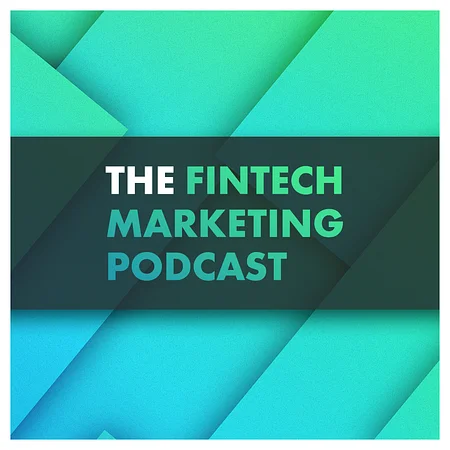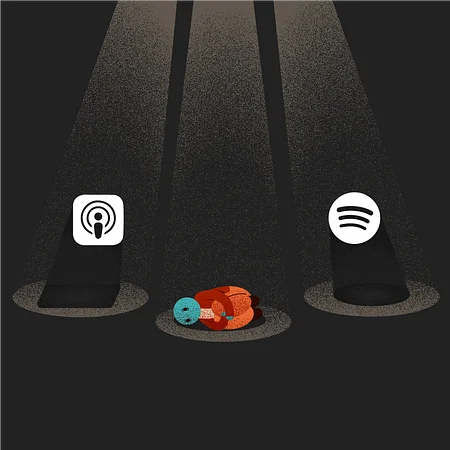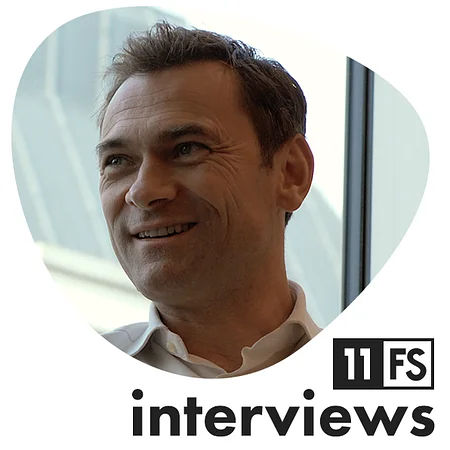5 reasons why your business should start a podcast

You want brand recognition and recall. You have a marketing and advertising spend but continue to use the same tactics and rely on metrics built primarily in an analogue media world to track many of your results.
In the media mix, there is space for every tactic, from physical advertising through to hyper-targeted digitally-native campaigns on LinkedIn.
However, the content being presented often feels like an afterthought, or worse is the same content pushed across multiple channels, paying no heed to how the audience consumes content across these diverse channels.
When looking at this mix and when considering how to create digital assets, non-traditional audio content should be high on your priority list. It can build brand recognition in a highly targeted manner and it can help your brand stand out from the crowd with a tone of voice that is uniquely yours.
Not convinced? Or think your brand isn’t right for the medium? It’s an understandable concern but if you’re a storyteller and want to define, create and distribute powerful narratives about you and the industry you work in, I’m going to outline the five reasons podcasts should be top of your ‘to do’ list:
1. Podcasts are going mainstream
Podcasts are 4% of the total audio market, which stood at about $20bn in 2018. Podcasts pulled in between $800m-$1.2bn in 2018, and that’s only the beginning.
All of this was accomplished in 2018 when Apple generated 75-85% of all podcast downloads. What other industry can you think of where the market share is dominated at that level?
For podcasts to increase in appeal, Apple needs competition. Not only to make discoverability easier but so that Apple themselves up their game (Apple podcast analytics are, if you’re not aware, atrocious) and provide a more robust service for content creators and businesses alike.
We’re in early 2019 and our prayers are starting to be answered... well, the competition bit anyway.
Spotify has gone big on podcasting. The audio streaming platform has decided to splash a reported $500m on media company Gimlet (creators of podcasts Reply all and StartUp) and Anchor; a service that allows people to host, distribute and monetize their podcasts.
$500m is a lot, but it’s paid dividends already. Spotify has already earned an estimated 10-25% market share. If you consider their massive customer base of 200m (half of which pay subscription fees) and that they’re actively looking at expanding into India, I think it’s safe to say that their share of the podcast market will continue to grow.
They’re not the only ones betting big on podcasts, Pandora was bought by SiriusXM for a stunning $3.5bn. Another company, Luminary - hoping to become the ‘Netflix’ for podcasts raised $100m recently and Himalaya, a US podcast company, raised $100m which was led by a Chinese audio platform. Some of these companies are unknown to wider audiences, but the fact of the matter is that people are serious about podcasts.
Still don’t think podcasts are right for your brand? Even Harrods started a podcast the other day!
2. Audio is the future
We live in a world where personalising services for customers is everything. TV has been massively disrupted by Netflix because customers want a service that can revolve around their lives and schedules, not the other way around. The same can be said about radio vs. Spotify/Apple music, they’re providing a service that allows customers to choose when and where they listen to their favourite music.
Now consider the emergence of audio integration into products and services causing the rise of the smart speaker and home hub. I’m a strong believer that more apps and services will utilise audio as a focal point to their propositions. In the same way that Face ID has become integral to the latest smartphones, there’s no reason why, with connected homes and other technological advances, audio won’t rule in a variety of scenarios.
The special thing about podcasts is that they will also compete with other mediums for consumer attention. Audio content has the potential to become a significant factor in internal communications for large companies, compete with Netflix for consumer attention and become a large part of educational curriculums. Whatever your company does - you should be looking at how you can utilise audio content, for both internal and external audiences.
3. Customers buy stories told by actual humans
You want the content you produce to appeal to potential clients or customers. Too many companies have become faceless, muted and boring. There is no depth or personality to so much of the content that we see today, so it’s actually a surprise that some of these brands haven’t experimented with something different. Advertising in the modern age should be about showcasing a narrative or telling a story. Too many companies are failing to do so, to the detriment of their brand.
If you’re trying to acquire new customers, they’re more likely to buy from a person they trust. The medium is incredibly powerful and intimate. You’re in a person’s ear for 40, 60, 90 minutes at a time. If they keep listening, it’s probably because they like the people that make the content - as much as the content itself. People buy into people, more than they do companies.
4. Service your existing community and audience
Every marketer will tell you that leveraging a community is one of the most powerful things you can do. If you can get your customers to do the sales for you, you’re on to a winner. Admittedly, it’s tough balancing acquisition with retention, but servicing your existing customer base is often lost as companies scale.
Now, it’s obvious that you want to serve them well with the actual service they’re paying for, but if you also have content that they digest and enjoy doing so, it can act as an incredibly powerful retention tool.
5. The ROI is significant because listeners are loyal
I’m gonna throw a few stats at you before I try and summarise why this point is important.
- 94% of podcast listeners are on social media
- 69% of people agreed that podcast ads made them aware of new products or services
- 80% listen to all or most of episodes
- 51% of the US population has listened to a podcast
- 45% of monthly podcast listeners have household incomes over $75k
- 46% of podcast listeners are between 18-34 years old
Podcast consumers are engaged, have money and tend to listen to shows repeatedly. No other medium has that impact on that demographic for branded content, 69% of podcast adverts made listeners aware of new products or services. Those adverts are usually 60-90 seconds long, so consider how much more powerful 30-60 minutes of content that aligns to your own business is.
Businesses should always be forward thinking, nearly 50% of podcast consumers fit in the ‘Millenial’ category - you could be targeting your future customers. Whether they sign up to your service now or in the near future, constantly speaking to people in this age category is incredibly significant.
If you want to learn more about podcasting or need help making one, email me: Petrit@11fs.com.


